Maritime Agencies
INTERNATIONAL CUSTOMS DAY: Lilypond Export Command CAC Hails Contribution of Agric Sector To Nigeria’s Non-oil Exports

By Izuchukwu Ozoemena
That agricultural products now dominate non-oil exports and accounts for over 53% of total export value through the ports is a
reflection of the determination and commitment of stakeholders to enhance the quality and marketability of Nigerian agricultural products.
Customs Area Controller (CAC), Lilypond Export Command, Comptroller A. Y. Odusanya stated this in Lagos, Tuesday, while giving a rundown of activities at the Export Command for the year 2024 as the Nigeria Customs Service (NCS) joins the global community to celebrate the International Customs Day with the theme ‘Delivering on Its Commitment to Efficiency, Security and Prosperity’.
The year, 2024, the CAC recalled, marked a significant milestone in the growth of Nigeria’s non-oil export sector, with the total value of exported goods reaching N2,141,546,149.

“This represents a commendable increase compared to previous years, highlighting the resilience and potential of Nigeria’s export capabilities particularly in agricultural products, manufactured goods and solid minerals.”
Within the period under review, he added, agricultural exports earned $1,134,337,499, while manufactured goods, solid minerals and others attracted $340, 996,434, $335,687,305 and $330,524,912 respectively.
“In addition to the impressive export values, the Lilypond Export Command processed a total of 30,979 containers throughout the year, facilitating smooth logistics and ensuring timely delivery of goods to international markets. The 2.5% surcharge generated from the export of previously imported goods as provided for in the 2021 Fiscal Policy amounted to N275, 833,297 as revenue to the Federal Government.”
Giving a comparative analysis of the dispositions for 3rd and 4th quarter, 2024, Comptroller Odusanya remarked that generally, the 4th quarter under review witnessed an understandable decline in export cargo-processing following challenges associated with the unavailability of empty cargo boxes for stuffing, coupled with a decline in demand for exportable raw materials following the end-of-the-year holiday period around the world.
Despite this, the Nigerian Export Supervision Scheme (NESS) revenue collection recorded a growth of 32.51%, climbing from N5,333,343,692.86 to N7, 067,351,977.16, a growth which highlights the resilience in non-oil commercial exports, the CAC explained.
The value of shipments in the 4th quarter, he said, saw a decline of 16.44%, from $937,357, 129.9 to $783,221,101.38. The tonnage of exported goods also declined by 22.49%, from 405,979.72 metric tons to 314,671 metric tons.
The duty paid on export of previously imported goods also declined by 32.39%, from N136, 042,360 to N91,945,795.00.
Still on the remarkable performance of the non-oil export sector, he attributed this to seamless collaboration and cooperation the Nigeria Customs Service enjoys with the NPA and other notable export stakeholders.
“This synergy has fostered an environment conducive to trade, enabling exporters to navigate the complexities of international markets with greater ease.”
“I, therefore, would want to assure all stakeholders and partners in the export value chain that the Command under my watch is positioned to ensure a more efficient clearance process, combat illicit trade and promote economic development.”
In 2025, he stated, it is critical to . maintain this positive momentum.
“We encourage all stakeholders – exporters, logistics providers and regulatory bodies – to continue working together towards a profitable export exercise. The foundation laid in 2024 should serve as a springboard for even greater achievements in the coming year.”
He harped on the importance of compliance with international standards regarding quality and preservation to enhance competitiveness of goods generated from Nigeria at the international market.
“Special attention should be given to agricultural products, particularly those destined for far-east nations like China, Japan, Thailand and others. The use of chemicals on agricultural products must comply with the standard’s where preservation techniques ate critical to maintaining products integrity during transit.”
Maritime Agencies
ENUGU International Trade Fair: NIMASA Urges Investors To Key Into Opportunities In Marine and Blue Economy
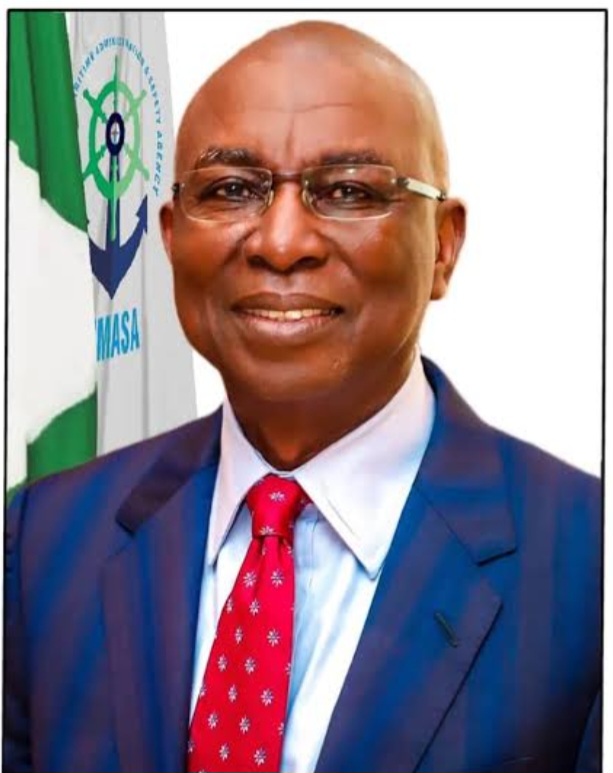
By Izuchukwu Ozoemena
Private businessmen and corporate investors have been urged to show more than a passing interest and seize opportunities Nigeria’s Marine and Blue Economy sector offers.
Dr Dayo Mobereola, Director General of the Nigerian Maritime Administration and Safety Agency (NIMASA) made the call at the 36th Enugu International Trade Fair, says a release by Edward Osagie, the agency’s image maker.
The DG who was represented by Mr Umar Mohammed, the Deputy Director in the Planning, Research and Data Management Service Department, highlighted that NIMASA was committed to implement the Renewed Hope Agenda of the Federal Government. He emphasized the need for inclusive economic growth through indigenous participation in domestic and international shipping.
“To unlock the full potential of our maritime economy, NIMASA is pursuing an integrated development strategy that will support indigenous operators in ship acquisition, establish a National Carrier Line, and create maritime training institutions for world-class seafarers”, Dr Mobereola stated.
The agency, he added, is also implementing a Public Sector Cargo Support Programme aimed at creating a captive freight market for local carriers and reducing the dominance of foreign shipping lines in Nigeria’s seaborne trade.
He said the agency’s strategic initiatives are being driven through public-private partnerships to ensure sustainability and long-term impact.
“Therefore, we are inviting investors and entrepreneurs to collaborate with us in developing a robust and competitive maritime sector that will create jobs and boost the national economy”, he added.
The NIMASA DG expressed appreciation to the Governor of Enugu State, Dr. Peter Ndubuisi Mbah, and the leadership of the Enugu Chamber of Commerce, Industry, Mines and Agriculture (ECCIMA) for hosting the trade fair, which he described as a vital platform for business networking and investment drive.
As part of the mandate to regulate maritime activities and ensure sustainable use of ocean resources,
NIMASA plays a key role in promoting the Blue Economy in Nigeria with its promotional responsibilities.
Maritime Agencies
NIMASA’s Edward Osagie Shines at National Spokespersons’ Award

By Izuchukwu Ozoemena
Of the 62 finalists shortlisted for recognition across 21 competitive categories in the 2025 edition of the National Spokespersons’ Awards held Wednesday in Abuja, Edward Osagie came tops as the most outstanding spokesperson from the Marine and Blue economy sector.
Three spokespersons from parastatals in the maritime industry participated in the final of the Award ceremony.
Edward Osagie who heads the Pubic Relations Department of the Nigeria Maritime Administration and Safety Agency (NIMASA) competed in the final award event for spokespersons in the Marine and Blue Economy sector with Ikechukwu Onyemekara, General Manager, Corporate and Strategic Communication Department of the Nigerian Ports Authority (NPA) and Muyiwa Akande, Head of Public Relations unit of Sifax Group.
NIMASA’s Osagie emerged a finalist in three categories which included Spokesperson of the year which happens to be the lead category, Outstanding spokesperson (crisis management – pubic sector) and Marine and Blue economy sector.
Olumuyiwa Akande also featured as a finalist in two categories such as Spokesperson of the year category and Marine and Blue Economy sector while Onyemekara of NPA featured as a finalist in the Marine and Blue economy sector.
At the final session, Osagie beat all the contestants in the Marine and Blue economy category to emerge winner.
In other categories, the Head, Media and Publicity Unit of the Economic and Financial Crimes Commission, (EFCC), Mr. Dele Oyewale, a Deputy Commander of the EFCC, emerged Outstanding Federal Government Spokesperson of the Year, 2025.
Oyewale emerged winner in a highly competitive category that included Presidential Spokesman, Mr. Bayo Onanuga (the Presidential Spokesman) and Josephine Adokuru Mudasiru of the Federal Capital Development Authority, FCDA.
Commending the nominees, the Chairman of the award Adjudication Committee, Dr. Shaibu Husseini, emphasized that the selection process was rigorous and merit -driven.
Oyewale stood out for his infusion of finesse in strategic communication, skillful workmanship, impactful media engagements and consistency in the excellent projection of the EFCC’s image and in enhancing public understanding of the Commission’s mandate and activities.
Other winners from other categories include: Olufemi Soneye (NNPCL) as Distinguished Spokesperson of the Year (Oil and Gas), Nigeria Customs Service as Best Corporate Spokesperson Team, Kashifu Inuwa (NITDA) as Most Supportive CEO to Spokespersons (Public Sector), Femi Babafemi (NDLEA) as Outstanding Spokesperson (Security Services).
Soneye (NNPCL) beat ACP Olumuyiwa Adejobi of Nigeria Police, Igo Weli-Shell Petroleum, Olumuyiwa Akande, SIFAX Group and Osagie Edward-NIMASA to emerge Spokesperson of the Year.
In his remarks, Joshua Audu Gana, Member, House of Representatives, congratulated the organizers for identifying and rewarding the outstanding communicators across various sectors.
He lauded the winners for their professionalism and devotion and urged them to continue to strive for excellence in the roles they play.
The Special Guest of Honour, Chairman, House Committee on Media and Public Affairs, Hon. Akintunde Rotimi Jr, emphasized the need for institutions and organizations to involve spokespersons in policy formulation and decision-making processes, noting that spokespersons should be equipped with first-hand knowledge of key issues so as to enhance their effective and accurate public communication.
The National Spokespersons Awards is Nigeria’s foremost platform for celebration of excellence in public relations, strategic communication, and media management.
The award is an annual celebration of individuals and organizations that demonstrate professionalism, innovation, and impactful public communication.
Maritime Agencies
MARAN Breakfast Meeting: Nigeria – China Currency Swap Deal Will Favour Trade, says CBN.
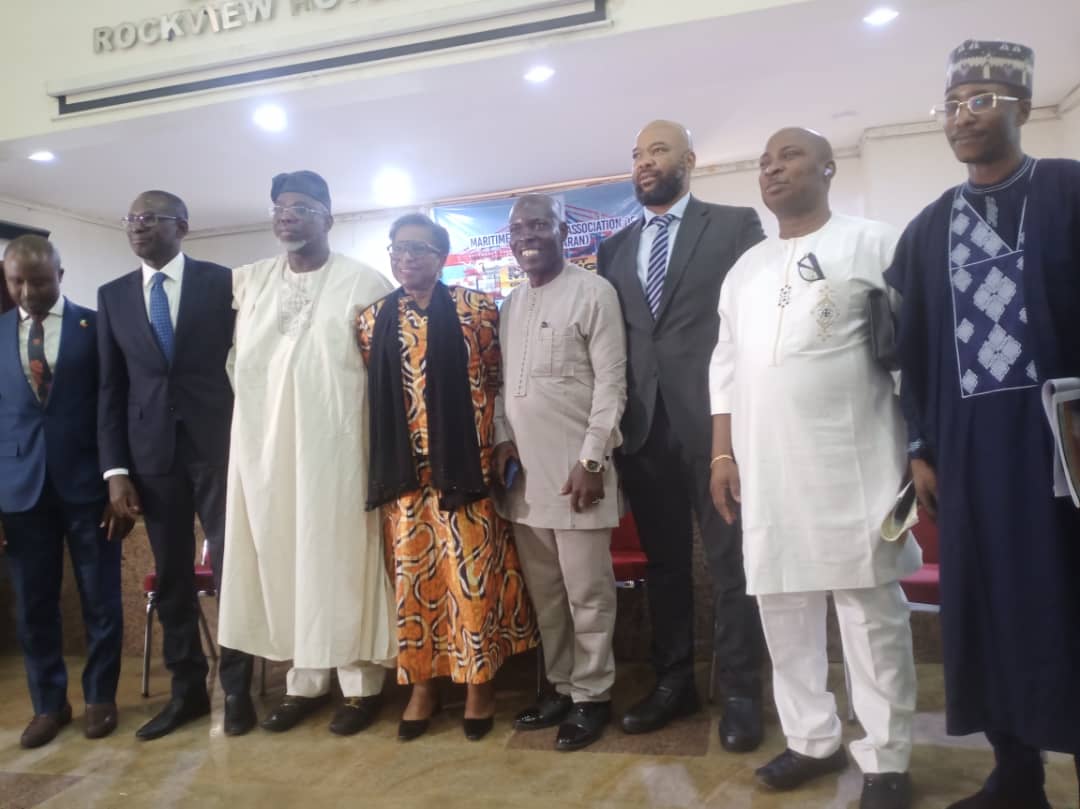
By Izuchukwu Ozoemena
The Central Bank of Nigeria (CBN) says a Nigeria-China currency swap deal has the potential to impact on Nigeria’s maritime industry by reducing shipping costs, enhancing trade efficiency, and easing foreign exchange pressure.
CBN Governor, Mr. Olayemi Cardoso, stated this in Lagos, Tuesday, while speaking at a stakeholders’ breakfast meeting organized by the Maritime Reporters’ Association of Nigeria (MARAN).
He explained that the agreement originally signed in 2018 and renewed in December 2024 enables Nigerian and Chinese businesses to conduct trade directly in Naira and Yuan (the Chinese currency), thus, bypassing the U.S. dollar.
Cardoso who was represented by Anthony Ogufere, the Special Adviser on Finance and Strategy, stated: “The swap agreement simplifies the settlement of trade transactions in local currencies and reduces the pressure on Nigeria’s dollar reserves. This, in turn, lowers the cost of doing business and enhances the competitiveness of Nigerian trade.”
The CBN Governor informed that by the end of 2024, China had become Nigeria’s largest trading partner, accounting for about 35% of total imports and reaching a trade volume of $11.58 billion. He added that the maritime sector, which handles the majority of Nigeria’s import and export activities, stands to benefit immensely through faster port clearance, improved trade finance instruments, and direct shipping links such as the Lekki Deep Sea Port—a Chinese-backed infrastructure project under the Belt and Road Initiative.
The CBN Governor, however, acknowledged that several challenges still hinder the full potential of the currency swap framework. Chief among them is Nigeria’s significant trade imbalance with China and the limited adoption of yuan-denominated transactions by Nigerian businesses. He called for greater sensitization, policy coordination, and efforts to expand non-oil exports to China.
Also speaking at the event, Mr. Martins Olajide, a representative of the Nigeria-China Strategic Partnership, offered a more cautious outlook. He noted that while the swap deal provides short-term relief and smoother trade operations, it is not a sustainable solution to the naira’s persistent depreciation.
Describing the swap arrangement as “swapization,” Olajide warned that Nigeria’s economic vulnerability and dependence on imports—especially from China—undermines the true impact of the agreement. He emphasized the need for structural reforms, particularly in industrialization, value addition, and local production.
“Without these changes, the swap deal may only reinforce economic dependence on China without solving the underlying issues,” he warned.
In his opening remarks, the Chairman of the event and Chairman of the Customs Consultative Council (CCC), Aare Akeem Olarenwaju, decried the volatility of the naira-dollar exchange rate as a major cause of the skyrocketing cost of goods in Nigeria. He called for greater public awareness of alternative currency options like the Chinese yuan.
“You can’t determine the price of goods within a few hours due to constant exchange rate changes. Today it’s ₦1,600 to a dollar, and in the next few hours, it could be ₦1,700 or ₦1,500. It’s the common people who suffer the most,” Olarenwaju lamented.
He commended the organizers for opening up conversations around trade, currency, and maritime development, urging media professionals to help educate the public on alternatives that could reduce the nation’s dependence on the U.S. dollar.
Earlier in his welcome address, MARAN President, Mr. Godfrey Bivbere, reaffirmed the association’s commitment to promoting dialogue on key economic issues. While acknowledging the swap deal’s promise in reducing transaction costs and enhancing trade efficiency, Bivbere stressed the need for a balanced discourse.
“We are not only here to applaud progress but also to interrogate policy. We must understand both the positive impact and the underlying risks associated with China’s expanding economic footprint in Nigeria,” he said.
Bivbere urged stakeholders across the maritime, trade, and financial sectors to approach the Nigeria-China currency swap with critical insight, noting that sustainable benefits would only come through policies that protect national economic interests while encouraging growth and competitiveness.
-
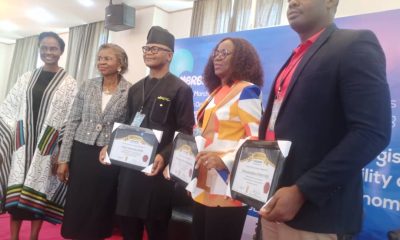
 Maritime Agencies3 weeks ago
Maritime Agencies3 weeks agoZoe Maritime Breakfast Meeting: NCDMB, NIWA, LASWA Discuss Maritime Logistics, Sustainability of Ocean Economy.
-
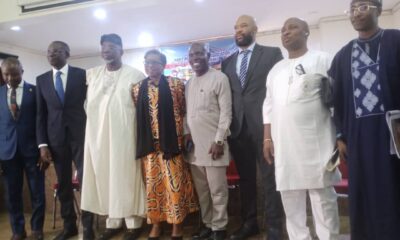
 Maritime Agencies3 days ago
Maritime Agencies3 days agoMARAN Breakfast Meeting: Nigeria – China Currency Swap Deal Will Favour Trade, says CBN.
-
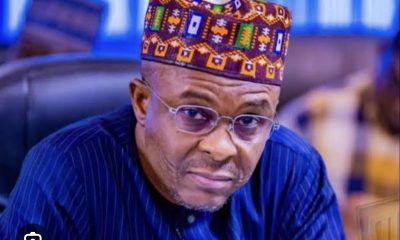
 Maritime Agencies1 week ago
Maritime Agencies1 week agoEnugu Trade Fair: NPA MD Markets Agency’s Simplified Export Processes That Favour Investors.
-
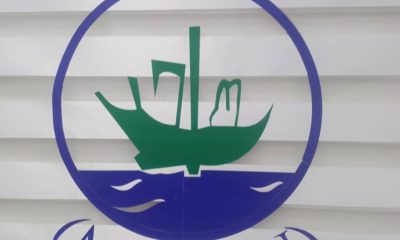
 Maritime Agencies1 week ago
Maritime Agencies1 week agoAll Roads Lead To Apapa For MARAN’s Breakfast Meeting on Nigeria – China Currency Swap Deal
-

 Maritime Agencies1 week ago
Maritime Agencies1 week agoQ1, 2025: Tincan Island Port Customs Collects N347bn, Breaks Record.
-
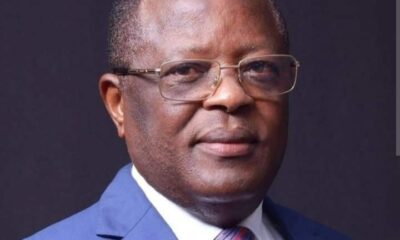
 Maritime Agencies1 week ago
Maritime Agencies1 week agoDistinguish Between Reclamation and Industrial Dredging, Dredgers’ Association Tells Works Minister.
-

 Maritime Agencies3 weeks ago
Maritime Agencies3 weeks agoMARAN Hosts Discussion on Nigeria-China Currency Swap Deal: Opportunities, Challenges
-

 Maritime Agencies17 hours ago
Maritime Agencies17 hours agoNIMASA’s Edward Osagie Shines at National Spokespersons’ Award


























